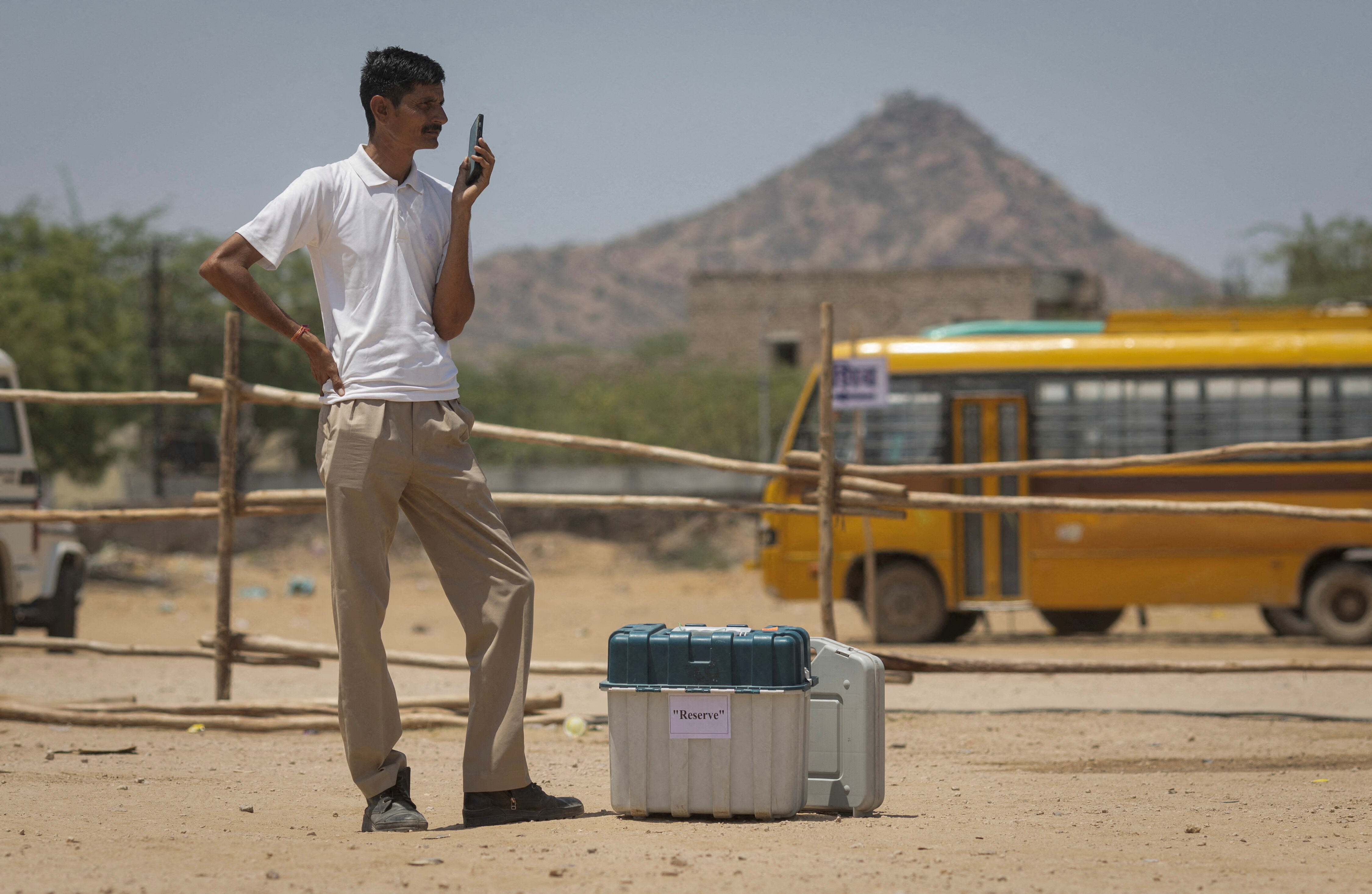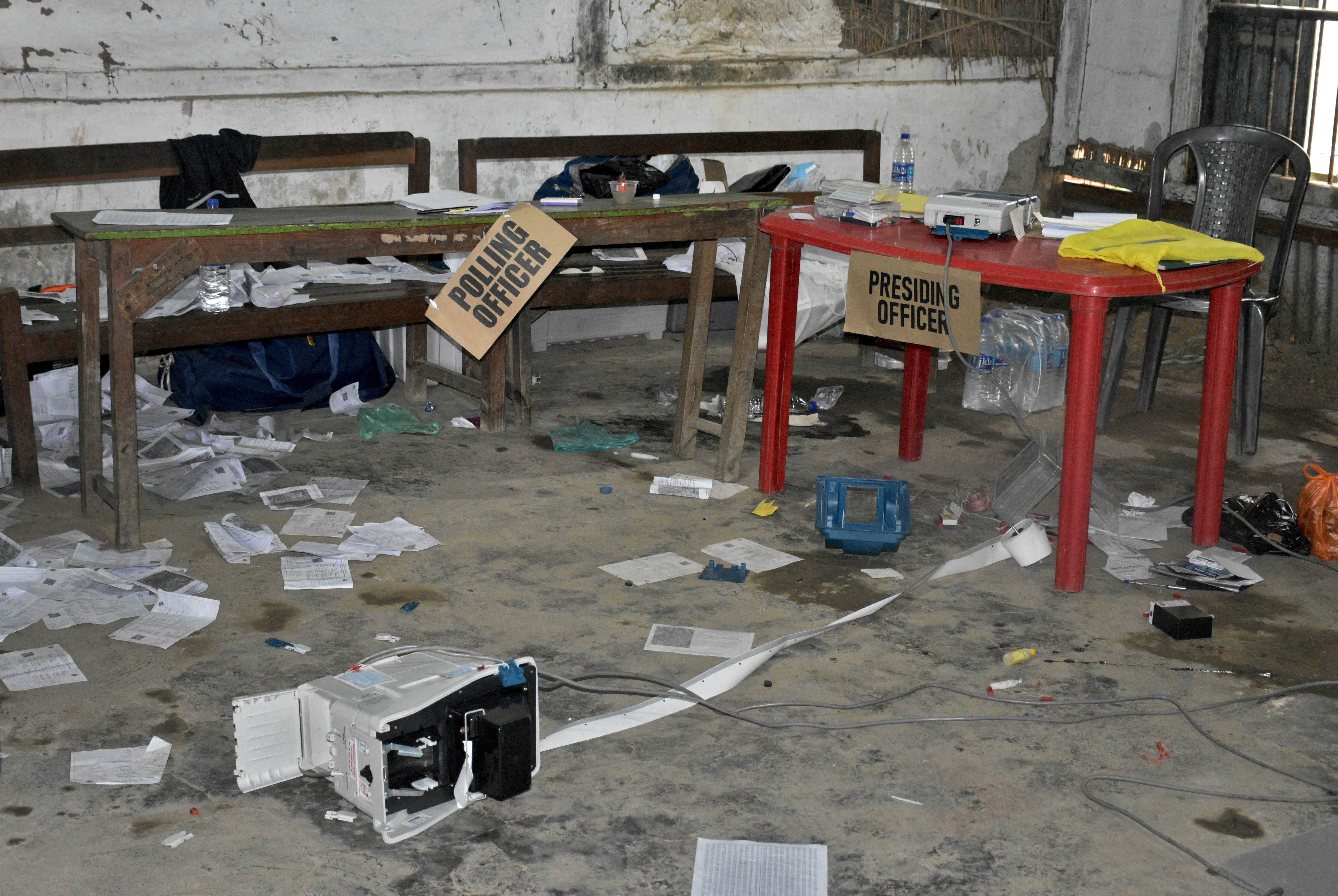In a country where nearly 970 million people are participating in a crucial general election, the state of journalism in India is under scrutiny. The article sheds light on the challenges journalists face, such as harassment, self-censorship, and attacks, especially under the current Modi-led government. With concerns about press freedom and the shrinking space for critical reporting, independent journalists are vulnerable, while mainstream media also practices self-censorship to avoid repercussions. The future of journalism in India appears uncertain, but hope lies in the resilience of independent media outlets.
On April 19, nearly 970 million Indians — over 10% of the world’s population — began voting in a six–week–long general election which will determine whether the ruling rightwing Bharatiya Janata Party (BJP), led by Hindu nationalist Prime Minister Narendra Modi, will be elected for a rare third consecutive term in power.
India's general elections have historically been a time of heightened journalistic activities and scrutiny of governmental policies, however, the contrast with the current climate is stark. Experts have raised concerns regarding the diminishing space for journalistic freedom and accountability since the ascent of the Modi-led government in 2014. This departure from the norm underscores broader anxieties about the state of press freedom in India, with journalists facing unprecedented challenges, including harassment, arrests, and physical violence from the state as well as non-state actors sympathetic to the ruling Hindu rightwing government.
Media watchdogs argue that things have taken a downturn, particularly after the current Modi–led regime came to power in 2014, and journalists in the country have since then found themselves under immense pressure, facing increased harassment, arrests and even attacks.
Fearing government crackdowns, many independent journalists and those working in mainstream media organisations, are resorting to self–censorship for their safety.
“When I started as a freelance journalist, I used to routinely report on human rights violations and state-sponsored violence in Kashmir,” said Quratulain Rehbar, an independent journalist from Indian–administered Kashmir, who moved to New Delhi after facing harassment for her reporting back in Kashmir. “But now I weigh the consequences before even pitching any critical story,” 28-year-old Rehbar added.
Rehbar is one among several journalists finding it hard to fight the might of the state and report fearlessly. Her apprehension stems from the repeated attacks she has come under not only from the authorities but also from trolls on social media. In 2022, she found herself listed for an “online auction” on an app where her photograph was sourced and uploaded without her consent for “sale” along with hundreds of other Muslim women journalists and activists.
“Most of the time, I am shrouded in guilt for not writing stories that need to be told,” lamented Rehbar. “I have ideas, but I don't pursue or even pitch them to certain publications that could draw trolls. There are multiple factors to consider before pursuing any story, from concerns about my family to other repercussions,” Rehbar said.
She now primarily reports on environmental or developmental projects with no political undertones and occasionally on minority issues.
According to a report released by Amnesty International in 2022, the Indian government under the leadership of Prime Minister Modi has been imposing unlawful and politically motivated restrictions on press freedom. The report highlights that this crackdown on dissent has not only targeted journalists but has also emboldened Hindu nationalists to harass, abuse, and even imprison journalists who are critical of the government.
According to the annual prison census by the global press freedom organization Committee to Protect Journalists (CPJ), India has held seven journalists behind bars every year from 2021 to 2023, marking the highest number since the documentation began in 1992. Of the 13 journalists documented in CPJ's 2021-23 prison censuses, all but one were detained under security laws. Some are listed in multiple annual censuses due to their ongoing imprisonment. Six of them were reporting on Kashmir, India's only Muslim-majority region, where the media has faced significant challenges since the government revoked the region's constitutional autonomy in 2019.

Increased Self-Censorship
Critics argue that the fiery debates on mainstream television channels and sharply written op-eds in national newspapers, typically associated with India's once–in–five–years election, have gone entirely missing this election season.
Instead, the corporate–owned mainstream media industry in the country, accused of gradually aligning with the BJP-led government during Modi's nearly 10-year tenure, is being brazenly supportive of the present dispensation.
In recent times, a small yet growing number of independent media outlets and journalists have been taking up the mantle of pursuing political stories and reporting on critical governance issues, which have often been sidelined by mainstream media. However, due to increased state pressure, these independent voices are also practising self-censorship.
Srishti Jaswal, an independent investigative journalist based in India, explains that Indian journalists prefer to call themselves independent journalists instead of freelance journalists. This is because it allows them to have editorial independence, which is often absent in Indian newsrooms.
However, Jaswal's reporting on the government's policies and actions against minorities has often resulted in threats and abuses against her, especially on social media platforms, which are often utilised by journalists worldwide to publicise and widely disseminate their reports.
“I often censor myself on social media even if it’s about breaking news or sharing a timely update,” said Jaswal. She explained that she has established a regular digital hygiene routine, in which she only posts published articles on social media, and is very cautious about expressing her opinions online.
Recently, after filing one of her reports on the unfulfilled housing promises in Modi’s “adopted villages” in the north Indian city of Varanasi for the independent digital publication, The Wire, Jaswal faced consequential trolling on social media. “Whenever my stories are widely shared, I know that I need to inform a few press freedom organisations. And so I did after this story, as the trolling became incessant,” Jaswal recollects. “But no organisation could do much. Being an independent journalist is a lonely journey and that’s primarily why journalists like myself censor ourselves,” she elaborated.
Kunāl Majumder, the India representative for the Committee to Protect Journalists (CPJ) described the current milieu as “enormously hostile” for practising journalism in India. “Without the institutional backup typically afforded to journalists associated with organisations, independent journalists become the most vulnerable,” said Majumder.
“There is no mechanism to protect independent journalists in India,” Majumder added, and also mentioned, “Even the press clubs are being hijacked by different groups for political gains which results in complete neglect of press freedom issues and journalists’ safety.”

Silenced Voices in Mainstream Media
While Modi's critics say that press freedom in India is rapidly declining- with the country’s ranking in the World Press Freedom Index dropping 21 places to 161 out of 180 countries since 2014- self-censorship in the mainstream media houses has also taken a new spin. Many journalists, fearing losing their jobs, are not pitching stories critical of the establishment to their editors.
The country has also seen several prominent news outlets being capitulated and many organisations taking down their published articles critical of the government, more frequently now than ever before.
“It would be a lie to say that journalists who have regular jobs in mainstream media are not practising self–censoring,” said Ruben Banerjee, a journalist and General Secretary at Editors Guild of India, an association of pan–India editors. “They face a double whammy of limited editorial independence, adhering strictly to the publication's coverage policy, and then they are required to protect their paying jobs.”
A journalist with more than five years of experience working in a mainstream news organization, who wishes to remain anonymous, explained that everyone from top editors to copywriters follows a clear style guide on what and how to cover an event, such as a protest.
“The simple and only rule is to always quote the police's or authority's statement, irrespective of the labelling or branding of communities,” he said. In addition to facing censorship from their organization, this journalist also tends to avoid working on stories that are politically sensitive or involve human or minority rights violations, unless other outlets have already covered them. “Many times, we don’t carry a certain news at all,” explained the journalist, elaborating, “If there is a government reaction or clarification regarding an event, that clarification often becomes the news.”
Banerjee argues that the current state of the media landscape can be attributed to the industry essentially functioning as an unorganised sector. “Journalists today in India are primarily grappling with power dynamics, lack of protection, and inadequate payment,” he said. “This situation makes their job more challenging.”
Majumder echoed his sentiments and pointed out that this trend also contributed to the shrinking space for original and investigative reporting in the country. “It's a multifaceted problem which requires working on many fractured fronts of the media landscape.”
Journalists like Rehabar and Jaswal believe that the future of Indian journalism appears bleak. “In the past, I have contemplated leaving journalism altogether,” admitted Rehbar. “Though, I don't think that now, I still feel very discouraged.”
Banerjee, on the other hand, still finds hope in independent journalism. “The future of Indian media now lies with these small independent organisations,” said Banerjee. “What they can do and whether they can sustain, is going to be the big question, especially after the election result is announced.”
The views expressed in this article are the author’s own and do not necessarily reflect Al Jazeera Journalism Review’s editorial stance








































